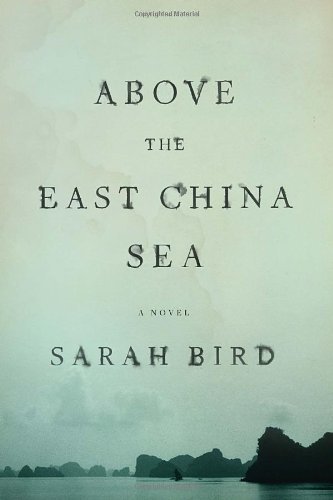 “Above the East China Sea”
“Above the East China Sea”
By Joy Tipping
(The Dallas Morning News)
I’ve thoroughly enjoyed watching Sarah Bird’s career flourish during the past few years. Her books, sometimes serious in tone, sometimes lightly comedic, have a loyal Texas following.
Her latest novel, “Above the East China Sea,” should be the one that lands the Austin writer among the literary elite. This is the rare tome that has the goods for both popular and critical acclaim at the highest level.
“East China Sea,” like Bird’s 2001 “The Yokota Officers Club,” is set on Okinawa, the largest of the Ryukyu Islands south of Japan. Bird lived there on Kadena Air Base for a time as an “overseas military dependent,” a phrase she prefers to “military brat,” because, as she puts it in a publisher’s interview, “children raised by soldiers who put the mission above all else ― including family ― are some of the least bratty America produces.”
The book depicts with dreadful intensity the 82-day-long Battle of Okinawa in early 1945, when U.S. troops fought to claim the island. More than 95,000 Japanese and 12,000 Americans were killed, including more than a fourth of Okinawa’s civilian population; more people, in fact, than died at Hiroshima and Nagasaki combined.
After the war, Japan surrendered an enormous chunk of valuable land for U.S. military bases, many of which (including Kadena) remain to this day.
Into this highly charged setting Bird thrusts her narrators, two spirited teen girls separated by time.
We’re first introduced to World War II-era, pregnant Tamiko as she stands atop a 150-foot cliff overlooking the sea, contemplating suicide. She envisions the “hundred thousand spirits who’ve gone before us,” as they “greet us with cries of joy, happy as a flock of crows at sunset hailing the returned.” She sees women with kimonos floating above them, along with emaciated Japanese soldiers.
“They had no choice but to jump,” she mourns. “And, now, we have none. The soldiers, either Japanese or American, will kill us as soon as the sun rises. We cannot die such a violent death. If we do, we will be condemned to haunt this place forever and never be reunited with my clan. I won’t permit my child to endure such a cruel fate.” That’s the kind of evocative brilliance you get from Bird on the first page.
We find out later that Tamiko and her sister Hatsuko, were Himeyuri (translation: Princess Lily) girls, Okinawan high schoolers forced by the Japanese to leave their sheltered school and work as combat personnel in fetid, unprotected “cave hospitals.” The vivid, often brutal scenes of the sisters during the Battle of Okinawa will remain with readers forever; a few parts actually gave me nightmares.
The other narrator is modern-day Luz James, whom we also first meet on Suicide Cliff. “Jump? Or don’t jump?” Luz ponders, devastated by the death of her older sister Codie, who was serving in the Afghanistan war. Her mom has just gone on assignment with the Air Force and isn’t around, so Luz has joined the rebels who smother their rootlessness and anger with pills, drinking and other self-destructive activities.
As Luz ponders her fate, Bird writes, “I hold my arms out and the muggy breeze … lofts the air up off of my sweaty neck. … I still feel like a dried-up leaf, all withered and brown from not being attached to anything, anywhere, in such a long time. It seems like the slightest gust of wind should be enough to blow me off this cliff and out of this life forever.”
Tamiko and Luz’s lives intertwine in ways I won’t spoil, and the book is more serious overall than Bird’s previous work, where her wit was a major draw. The book does offer some comic relief, but is by no means “funny,” and Bird’s fans shouldn’t expect that.
What they should expect is never again having to explain who Sarah Bird is to another book lover. After this one, Bird should be a literary household name. (MCT)

